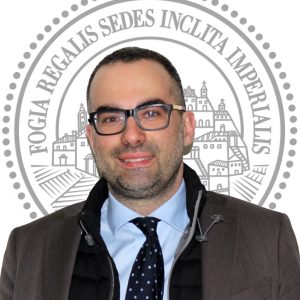Gabriele Fattori

Gabriele Fattori is Full Professor at the Law School of University of Foggia (Italy), where he is Director of the Master in Security and where he teaches Italian Church and State relations, Canon Law and, Religious freedom and Security. He collaborate with the Center of Religious Studies (ISR) of the Bruno Kessler Foundation. He obtained a Phd from the University of Urbino and graduated from the Gratianus programme on law and religion at the University of Paris XI. He has conducted research and held teaching appointments at the Universities of Siena, Macerata and Genova. His most recent publication is: Diritto Costituzionale della religione (Giappichelli, 2018). Among his research interests: Church-State relationships in Europe, history of canon law, civil and canon marriage law, bio-ethics law, property and taxation aspects of Church-State relations, criminal law and religion. He is a member of the editorial board of the journal “Quaderni di diritto e politica ecclesiastica” and of the scientific committee of “Studi urbinati”.
Author's articles
-
 June 4, 2020Gender equality: achievements and perspectivesIn any crime against women it is always to be found the gender stereotype according to which women must stay one step behind anywhere: at home, at work, in society. It is high time is for a turning point.
June 4, 2020Gender equality: achievements and perspectivesIn any crime against women it is always to be found the gender stereotype according to which women must stay one step behind anywhere: at home, at work, in society. It is high time is for a turning point. -
 May 13, 2020Violence against women: law and responsibilitiesItalian norms and sentences have long justified the culture of female subordination and at times indulged violence against ‘disobedient’ women. Let's see how it was so.
May 13, 2020Violence against women: law and responsibilitiesItalian norms and sentences have long justified the culture of female subordination and at times indulged violence against ‘disobedient’ women. Let's see how it was so. -
 May 4, 2020Gender violence. Violence against women. FeminicideThrough human and social sciences and statistics, we can understand differences, shared characteristics and the evolution of such criminal phenomena. Let's see in what they are different.
May 4, 2020Gender violence. Violence against women. FeminicideThrough human and social sciences and statistics, we can understand differences, shared characteristics and the evolution of such criminal phenomena. Let's see in what they are different. -
 April 20, 2020WHAT IS VIOLENCE AGAINST WOMENThe first of four insights into the phenomenology of gender-based violence, a "cultural and civil emergency" that questions the very reasons for our being together
April 20, 2020WHAT IS VIOLENCE AGAINST WOMENThe first of four insights into the phenomenology of gender-based violence, a "cultural and civil emergency" that questions the very reasons for our being together
Related tags
- Loading tags...
- #donne
- #women
- #violenza di genere
- #femminicidio
- #diritto
- #violenza
- #violence
- #feminicide
- #law
- #religiousstudies
Browse by months
- Loading months...
- June 2020
- May 2020
- April 2020